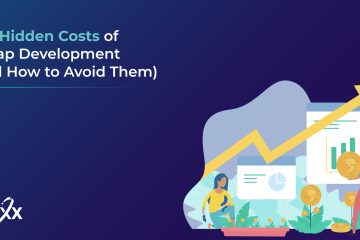When to use PHP
Using PHP for web development can be the best route to go when designing. This article outline when to use PHP and the best scenarios it’s good for.
There are about 244 million websites that use PHP. The trend continues to grow since a lot of web developers use PHP to enhance HTML websites. For people studying web development, PHP is a logical language to learn after mastering HTML to help their future career.
But why PHP instead of the other scripting languages out there?
The Internet is a vastly growing ocean and more coding options become available over time. What makes it stand out from all the old and new choices? How do you know when to use PHP instead of something like JavaScript?
Why Use PHP for Your Website?
If you’re wondering about when to use PHP, you need to know the reasons why it’s the best choice for website development. Let’s explore some of the great reasons to use PHP.
PHP is HTML-Friendly and has Lots of Features
If your website uses HTML, it’s easier for you to step up to PHP. You can interchange between PHP and HTML within the webpage you’re making. You can put the PHP codes inside HTML code or vice versa.
This is the best situation when to use PHP. It adds a lot of new features to your website but it still uses HTML to create its basic appearance. It allows you to give your visitors a unique experience with its interactive features.
You can use PHP if you want to design features, from simple email forms to the more complex shopping carts. You can make these display past orders and recommend products they might like. Knowing when to use PHP allows you to make interactive forums and private messaging systems.
PHP is Easy to Learn
Learning when to use PHP is easy since the language itself is not that hard to understand. You can learn a lot of simple functions that help you implement useful features on your website. After learning the basics, you can search online for free available scripts and tweak them to fit your website needs.
If you want to learn about making your own scripts, you can browse the PHP documentation on the internet. It has the best online documentation since it’s easy to understand.
You can find all the function and method call documentation. Each comes with their own sets of examples, showing its practical use for your website. Most of the user comments on these pages involve tips that help you know when to use PHP functions and methods.
PHP is Free and Compatible with Databases
You can get PHP online without paying for anything. It’s a global standard so you can use it no matter what web development and design tasks you do. It’s a great solution since it’s user-friendly, easy to learn, and you can use it on multiple platforms.
PHP is an open-source software. Unlike other programming languages, you can redistribute and modify it for free, meaning that it’s improving and upgrading its core functionalities all the time. PHP has a dedicated development team that can give you technical support.
PHP supports a lot of databases included MySQL. You need to put a layer of abstraction to implement this. Alternatively, you can use an extension and it works all the same.
PHP Integrates with Everything
With PHP powering around a third of the web, it’s not surprising that you can integrate it with a lot of third-party applications. You can see PHP in the following sectors of society:
- Banking
- Transportation
- Government
- Financial and more…
It gives businesses a lot of applications that perform critical tasks. If you want to make it big in the industry, PHP can help build your online presence more than with HTML alone.
When to Use PHP for Your Web Development Project
The uses of PHP are endless. If you want to make your website more attractive, you can write PHP scripts for it. Here are some uses of PHP:
For E-Commerce
You can use PHP for e-commerce processes. Over a billion people have bought a product online. Whether you’re a small business or a large enterprise, you need PHP to gain more online profits.
If you’re new to PHP, you can use an existing e-commerce solution until you can customize it on your own. It’s easier to spend a few days studying documentation and manuals rather than learning PHP from scratch. It all depends on the time you’re willing to spend to learn about it.
For Online Community Development
No matter what kind of business you have, your customers want to feel connected. You can use PHP to develop a forum where your customers can discuss issues with you. Most users feel like hotlines and e-mail forms aren’t enough when they need immediate support.
If you make a forum, your customers can help solve each other’s issues. Your online community can lower your support workload and give useful tips from their experience.
There are other frameworks you can use to build online forums, but PHP is the best choice. It allows you to use scripts to make it easier for people to use. You don’t need to pay for these scripts since you can get them using a simple online search.
For Photo Galleries
PHP has file handling functions you can use to create a photo gallery. A good function to use is exif, which gets your photos and make a thumbnail version. Place your photos in a single directory and you get a great way to present your photos.
Know When to Use PHP Today!
PHP is one of the most popular programming languages for web development today. A lot of businesses use it to make their websites better and more interactive. If you want to go the extra mile and give more functionality to your customers, you can achieve that using PHP.
You don’t need to worry about paying since PHP is free to use and open source. You can customize it to fit your business needs. It’s a great way for you to save funds, maximize profits, and increase your customer engagement.
If you want to have an edge over your competitors, learn when to use PHP for your website. It’s easy and you have a lot of online support.
Do you have any questions? Do you need a great website for your business? Contact us today and we can help you.


